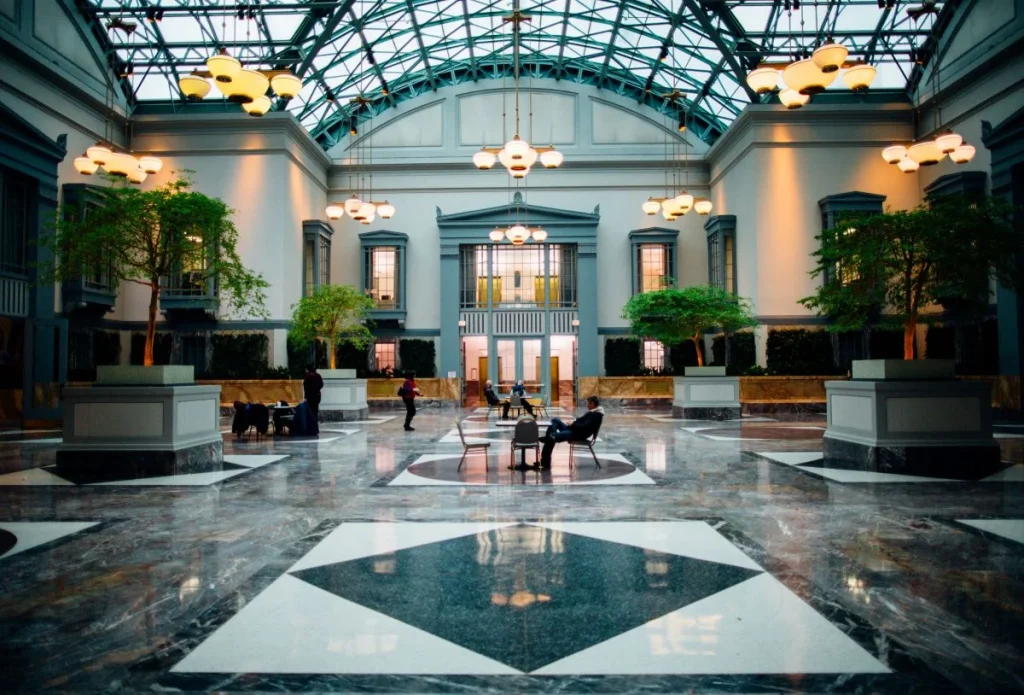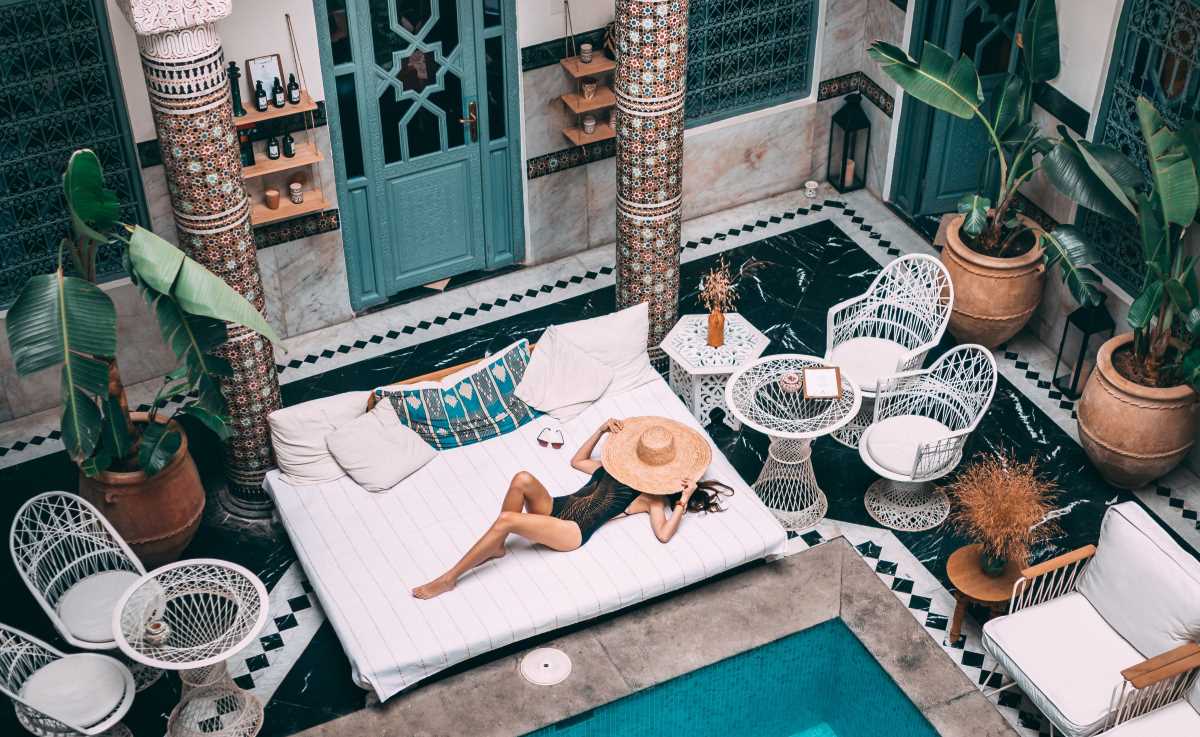The Philippines, known for its stunning landscapes and vibrant culture, has also emerged as a destination for upscale real estate investment. However, recent discussions about the potential increase in luxury taxes have raised questions about how such a move might impact the upscale real estate sector in the country. This article delves into the potential effects of an increased luxury tax on premium homes real estate in the Philippines.
According to PhilStar Global, The 43 percent taxes on “non-essentials” and expensive real estate that are being proposed in the House of Representatives will only be paid by 0.0001% of the country’s population.”The easiest way to tax wealth is through conspicuous or luxurious consumption and through taxation of immovable assets (i.e. land),” said Albay Representative Joey Salceda in House Bill 6993, which also seeks to tax “non-essential” items like designer handbags and jewelry. The chairman of the House Ways and Means Committee added, “Property taxes on immovable assets are tough to cheat. “A general increase in real property tax rates will be painful and ineffective.”
In contrast, he noted in his explanatory note, “proper valuation of luxury real estate (such as those in gated subdivisions and golf courses) will help increase revenues and make the tax system more progressive.” Salceda’s proposal intends to raise the current 20 percent tax rate on “non-essential goods” to 25 percent by adding an additional 5%. These commodities include premium Louis Vuitton handbags, jewels, cologne & perfume, boats, and wristwatches. The value-added tax of 12 percent for sales of real estate properties and the 6 percent capital gains tax, when combined with Salceda’s proposed 25 percent, would amount to a total tax of 43 percent.
“The luxury residential property tax will be in addition to the VAT and other sales taxes. All additional taxes will be in addition to the tax on non-essential items. For instance, the luxury automobile tax will be in addition to the auto excise tax, he wrote. According to a House spokesman, this bill will bring in P15.50 billion annually for the government. His list of opulent products was unveiled in January and includes private aircraft, luxury watches, automobiles costing more than P5 million, luxury homes costing more than P100 million each, beverages costing more than P20,000 per bottle, and leather goods costing more than P50,000 each.
Other products, including sales of shares in upscale membership clubs (Manila Polo Club, Tagaytay Highlands, etc.), jacuzzis, furs, all regatta gear, and antiques are also being considered, but the revenue potential may be restricted and enforcement costs may outweigh the revenue potential, according to Salceda in a previous press release.
In addition to enlarging the list, he continued, raising the non-essential products tax rate to 25% or 30% will bring in an additional P15.5 to P18.6 billion annually. Salceda has stated that he is sympathetic to Oxfam International’s demands to impose a luxury tax on non-essential goods bought by the ultra-rich.
“Wealth promotes extravagant lives, often known as conspicuous consumption, according to economists. Since they (the exceedingly rich) won’t mind paying taxes anyway, we can put them on those products, he had added.
He was making reference to Section 150 of the Tax Code, as modified, which now levies a 20% tax on the cost of jewels, perfumes, yachts, and other opulent goods valued by the super-rich. At this early stage, Salceda promised that his “committee will definitely pass a measure expanding that list (of luxury goods that will be taxed more), but we will discuss which items can generate the most revenue for the least effort.”
Marcos supports the luxury tax and exhorts Filipinos to pay their fair share.
The discussion will generally center on what may be deemed generically “luxury,” according to the lawmaker-economist. “To me, it is when an item is beyond reasonable reach of the vast majority of the population and is not necessary for any essential function,” he said.
Jose Maria Clemente S. Salceda, chair of the House Committee on Ways and Means, has presented a bill that would raise the tax rate on luxury or non-essential commodities from 20% to 25%. This change would bring in an additional P15 billion for the government.
Last month, Mr. Salceda said that his idea was in response to requests for the Philippines to impose a wealth tax from international groups. A bill attempting to raise the tax rate on upscale items has the support of President Ferdinand R. Marcos, Jr. The Philippine president praised the Bureau of Internal Revenue’s (BIR) stepped-up effort to combat tax evasion at the same time since the nation needs more money for its economic recovery initiatives. The BIR’s national tax campaign event was held in Pasay City, and Mr. Marcos spoke to reporters on the sidelines of it. “I think right now the tax on luxury goods only covers very specific items and luxury goods,” he said.
The demand for opulent goods, he said, such as designer handbags, fine jewelry, vehicles, and private planes, among others, does not shift readily, “whatever the situation is.”
What is Luxury Tax?
A luxury tax is a sales tax or surcharge that is only applied to a select group of goods or services that are regarded as extraneous or available to the extremely wealthy.
Luxury taxes, often known as “sin taxes” or “excise taxes,” are assessments levied on products or services that are seen to be opulent or non-essential. Governments may want to raise money, lessen income disparity, or just discourage excessive consumption depending on their goals. Luxury taxes are often placed on homes that cost more than a specific amount when it comes to posh real estate.
According to Brittanica, the Excise tax on items or services that are viewed as extras rather than needs is known as a luxury tax. Taxes on perfume and jewelry are contemporary examples. Luxury taxes can be imposed with the intention of taxing the wealthy, as was the case with the late 18th and early 19th century British taxes on carriages and manservants, or they can be put in place with the intention of changing consumption patterns, either for moral or emergency-related reasons. The revenue-generating potential of luxury taxes in modern society has likely eclipsed the moral case for them. Additionally, the progressive aspect of the early taxes started to disappear as more low-income people’s “luxuries” were taxed in an effort to raise more money; an illustration of this is the amusement tax.
Luxury items covered under the tax implementation
Luxury taxes are often levied on expensive or upscale goods and services in an effort to raise money for the government, curtail overindulgence, and address wealth inequality. These taxes may be imposed on a variety of things and actions that are seen as luxuries or extravagances. Here are a few typical items that could be subject to luxury taxes:
High-End Automobiles
Luxury, sports, and other high-performance automobiles are frequently subject to luxury taxes. These levies may be determined by the cost of purchase, the size of the engine, or the fuel economy of the vehicle.
Jewelry and watches
Due to their high cost and non-essential nature, pricey jewelry, opulent timepieces, and valuable gemstones may be subject to luxury taxes.
Designer Apparel and Accessories
High-end luxury goods, including designer apparel, handbags, shoes, and accessories, may be subject to a luxury tax.
Fine Wines
Due to their rarity and high prices, premium wines, vintages, and premium spirits may be subject to luxury taxes.
Yachts and Private Jets
The acquisition and ownership of boats, private jets, and other upscale recreational vehicles may be subject to luxury taxes.
Luxury Real Estate
High-value real estate properties or premium homes that surpass specific valuation standards may be subject to luxury property taxes.

High-End devices
Luxury taxes may apply to expensive devices including top-of-the-line laptops, high-end cell phones, and high-end home entertainment systems.
Fine art
Sales and purchases of expensive paintings, sculptures, and collectibles may be subject to luxury taxes.
Travel and lodging
Expensive travel services, five-star hotels, and upscale lodgings may be subject to additional taxes.
Cosmetics and perfumes
Expensive skincare items, designer fragrances, and cosmetics may also be subject to luxury taxes.
Luxury Tax Philippines
According to Business World (2023), The much-anticipated luxury tax plan is characterized as a tax on “non-essentials” including jewelry, designer handbags and watches, luxury cars, private aircraft, and upmarket real estate, with the proposed rate on these items set at 25%.
Rep. Jose Ma of Albay introduced House Bill No. 6993. The head of the House Committee on Ways and Means, Clemente S. Salceda, suggests adding a 25% tax on an item’s wholesale cost or import value. The proposal was expected to generate P15.50 billion annually.
The explanatory note for the bill states that the covered commodities are “beyond the reach of the bulk of consumers, and which are not significant or important inputs to other value-adding industries.”
The bill lists the following items as non-essential: real or fake jewelry, cologne and eau de toilette, yachts, wrist watches, bags, wallets, and belts costing more than P50,000.
Residential real estate worth more than P100,000 per square meter and alcoholic and non-alcoholic beverages costing more than P20,000 per liter are also included in the bill’s definition of luxury goods. The tax will apply to paintings exceeding P1 million, antiques over P100,000 and above, and new or used cars worth at least P1 million. Apart from those owned by the Philippine government, airlines, and logistical firms, the law also aims to tax private aircraft and their components. The bill proposes to amend Section 150 of the National Internal Revenue Code, which authorizes a 5% tax on invasive cosmetic procedures, surgeries, and body enhancements.
Analysts last week said that a wealth tax will generate higher revenue than a tax on luxury items. A wealth tax bill is currently pending at the committee level. “While morally sound, the practical problem with a wealth tax based on net worth is that capital is extremely mobile, and many countries offer ‘tax-haven’ passports to extremely wealthy individuals,” according to the bill’s explanatory note. The Albay representative also said that the bank secrecy law, especially for foreign currency deposits, will make it difficult to monitor wealth taxes.
Related Blog: A Proposal to Taxing Luxury Goods: A Way to Help Reduce Extreme Inequality


